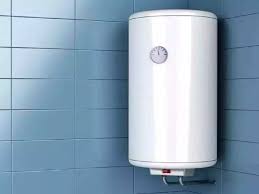In this article we will discuss The Rise of Modular UPS Design in Power Management.
The need for efficient power solutions has become increasingly crucial in our ever-evolving world, where technologies continue to advance at a remarkable pace. In today’s fast-paced environment, industries are constantly seeking innovative ways to optimize their operations, and one approach that has gained significant traction is modular design. By incorporating modular design principles into power solutions, companies can unlock many benefits that enhance flexibility, scalability, and cost-effectiveness. In this article, we delve into the world of power solutions in modular design, exploring how this approach revolutionizes how we address power needs and propels industries into a more sustainable and future-proof era.
The Rise of Modular UPS Design in Power Management
In recent years, the rise of modular uninterruptible power supply (UPS) systems has revolutionized the field of power management. Traditionally, power solutions were built monolithically, with a single large UPS unit delivering power to critical loads. However, the modular approach allows for creating a network of smaller, independent Modular UPS Design that work together to provide power to the loads. This modular design offers several advantages over the traditional approach.
First and foremost, modular UPS systems offer enhanced flexibility. With a traditional monolithic UPS, any modifications or upgrades would require replacing the entire unit, leading to significant downtime and disruption. In contrast, a modular UPS allows for easy scalability. Additional UPS modules can be added or removed as needed without causing any interruption to the power supply. This flexibility is precious for industries that experience variability in their power requirements, allowing them to adapt to changing needs easily.

Furthermore, modular UPS systems can also provide cost-effectiveness. With a traditional UPS, companies often must invest in a unit larger than their current power requirements to account for future growth. This results in unnecessary upfront costs and increased energy consumption. In contrast, modular UPS systems can right-size the power capacity, ensuring that companies only pay for what they need. Additionally, maintenance costs are lower as individual modules can be replaced or serviced without disrupting the entire system.
In conclusion, the rise of modular UPS systems has opened up new possibilities in power management. This design approach’s flexibility, scalability, and cost-effectiveness make modular UPS systems an attractive choice for industries seeking efficient power solutions. As technologies continue to advance and power requirements evolve, the demand for modular UPS systems will likely continue to grow.
Benefits and Applications of Modular UPS Design
Modular UPS systems offer several benefits and have various applications in different industries. One of the key advantages of modular UPS systems is their flexibility. These systems consist of multiple modules that provide power in parallel, allowing for easy scalability and customization. As power demands increase or change, additional modules can be added to the system, ensuring a reliable and uninterrupted power supply.
Another benefit of modular UPS systems is their high availability. In traditional Modular UPS Design, the entire system can be at risk if a single module fails. However, in modular UPS systems, the failure of one module does not impact the operation of the others. This modular redundancy ensures that there is no single point of failure, significantly increasing the system’s overall reliability.
Furthermore, modular UPS systems are cost-effective compared to traditional UPS systems. Companies often invest in extra capacity with traditional systems to accommodate potential future growth. However, this approach can be costly as the excess capacity may remain unused for an extended period. Modular UPS systems allow businesses to scale their power capacity as needed without investing in unnecessary resources. This cost-effectiveness makes modular UPS systems practical for industries with dynamic power requirements, such as data centres, manufacturing facilities, and healthcare institutions.
Overall, the benefits and applications of modular UPS systems make them valuable power solutions for today’s fast-paced and ever-changing industries. These systems’ flexibility, scalability, high availability, and cost-effectiveness contribute to improved operational efficiency and ensure a continuous power supply, even in the most demanding environments.
Case Study: How Modular UPS Revolutionised Power Supply
The case study titled “How Modular UPS Revolutionised Power Supply ” focuses on the significant impact of incorporating modular design principles into power solutions. With the ever-increasing advancements in technology, efficient power solutions have become essential. Modular design offers various benefits, including enhanced flexibility, scalability, and cost-effectiveness. Industries operating in fast-paced environments continuously search for innovative ways to optimize their operations, making modular power solutions ideal.
Modular design allows for the easy integration and expansion of power systems, making them highly flexible. As businesses grow, their power requirements also increase. By utilizing modular UPS (Uninterruptible Power Supply) solutions, companies can easily scale their power supply without incurring significant costs or disruptions to their operations. The ability to add or remove modules based on the changing needs of an organization provides a level of adaptability that traditional power solutions cannot match.
Additionally, modular UPS systems offer increased efficiency and cost-effectiveness. These systems allow for individual module monitoring and maintenance, ensuring that only the necessary modules are operational, thereby minimizing energy wastage. Reduced energy consumption lowers operational costs and contributes to a greener and more sustainable environment. Furthermore, the modularity of these power solutions enables faster and easier repairs or upgrades, saving both time and money for businesses.
Overall, the incorporation of modular design principles in power solutions has revolutionized the power supply industry. Modular UPS systems have become a game-changer for industries needing efficient power management by providing enhanced flexibility, scalability, and cost-effectiveness. With the ever-increasing demand for reliable and sustainable power solutions, the modular design approach continues to pave the way for innovative advancements in the field.




























